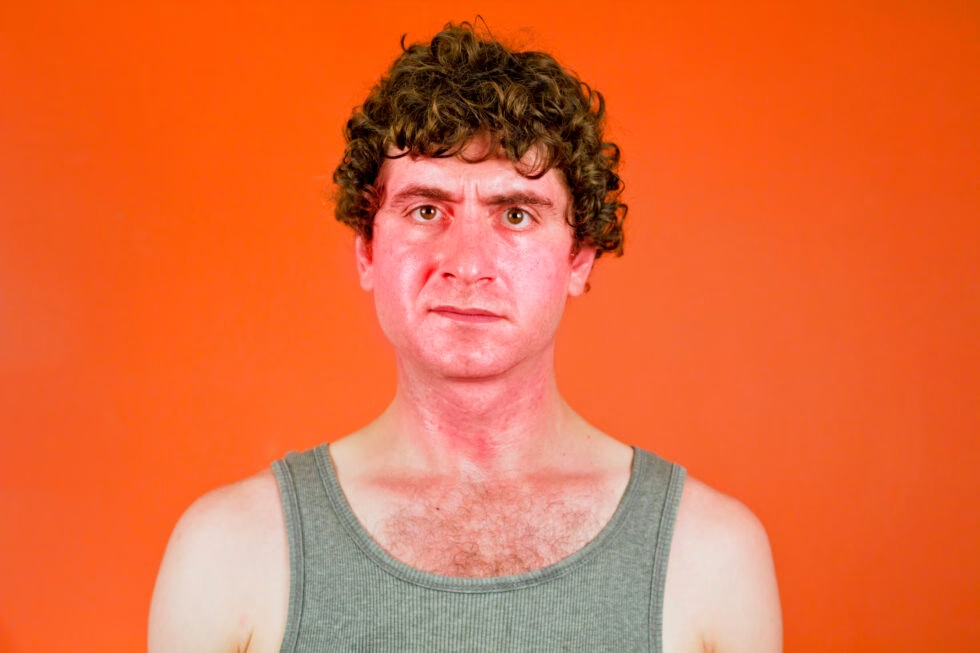
Will a Tanning Bed Help My Psoriasis?
If you are lucky enough to regularly hike Baker’s Mountain Park with its nearly six miles of trails you likely go well prepared with sun protection in the form of a hat, sunscreen, and perhaps specialized clothing. You take particular care to avoid the sun’s most intense rays between the hours of 10 a.m. and 4 p.m. If you have psoriasis, you may experience some relief from your symptoms during hiking season, or you may have found yourself with a sunburn that exacerbated your symptoms. Baker Park sits over 1,700 feet above sea level which means that the atmosphere absorbs fewer UV rays, and your skin absorbs more than if you were at sea level, increasing the likelihood of getting sunburnt.
Sunlight is composed of ultraviolet light (UV) which is a form of radiation. It is primarily composed of light on the ‘A’ spectrum (UVA) which penetrates the skin deeply. Brief exposure to UVA light can help treat psoriasis but it is also the spectrum most associated with skin cancers. Light on the ’B’ spectrum (UVB) accounts for 5% of natural sunlight. UVA light penetrates the skin more deeply than UVB rays. It is the UVB spectrum that is most used by doctors in treating plaque psoriasis as it slows the growth of affected skin cells, but exposure is carefully monitored and limited to noticeably short periods.
Understanding Plaque Psoriasis
Plaque psoriasis, the most usual form of psoriasis, presents as raised, red patches of skin covered with thick, silvery scales. This chronic condition stems from an overactive inflammatory autoimmune response, causing skin cells to multiply at an accelerated rate. Normally, skin cells are replenished every 28 days, but in plaque psoriasis they are replaced extremely fast—in just four days, leading to the characteristic plaques.
Heredity, obesity, smoking, stress, and alcohol use are among the contributors to the risk of developing psoriasis.
Psoriasis can show up in these locations:
- Elbows & Knees
- Scalp & face
- Lower back
- Palms of your hands; Soles of your feet
- Fingernails and toenails
- Mouth and lips
- Eyelids
- Ears
- Skin folds
If you have psoriasis, then you are familiar with how difficult it can be to treat. It can develop and flare up pretty much anywhere on your body and the flares can be uncomfortable, unsightly, and potentially embarrassing. For individuals battling plaque psoriasis, finding relief from its symptoms is often a top priority. Amidst a plethora of treatment options, from topical creams to phototherapy regimens, the allure of tanning beds as a potential solution may seem convenient and enticing. However, the use of a tanning bed could exacerbate rather than alleviate the condition along with causing long-term damage to the skin.
Tanning Beds
Tanning bed bulbs emit a blend of 95% UVA and 5% UVB radiation, the same composition as natural sunlight, but with concentrated intensity. In the pursuit of relief, individuals with plaque psoriasis may turn to tanning beds, drawn by the promise of UV light exposure to mitigate symptoms while picking up a healthy tan in the process. In truth, Tans are not healthy at all but represent the body’s protective response against the damaging radiation of UV rays.
The high-intensity UV exposure of tanning beds can wreak havoc on already sensitive skin, exacerbating inflammation and potentially triggering psoriasis flare-ups. Moreover, the dehydrating effects of tanning beds can further compromise the skin barrier, intensifying the dryness and discomfort associated with psoriasis. Worse, in a 2012 study conducted by the U.S. House of Representatives Committee on Energy and Commerce, 90% of tanning salons denied that indoor tanning posed any health risks and more than half denied any link to an increased risk of cancer.
Amplifying Health Risks
Beyond the immediate impact on psoriasis symptoms, tanning bed use poses significant health risks, particularly concerning skin cancer. Studies have shown a clear association between indoor tanning and an increased risk of melanoma, the deadliest form of skin cancer, as well as squamous cell carcinoma and basal cell carcinoma.
Risks associated with Tanning Bed Use
- Indoor tanning can increase your risk of developing the two most common types of skin cancer, squamous cell carcinoma by 58% and basal cell carcinoma by 24%.
- Using tanning beds before age 20 can increase your chances of developing melanoma by 47% with the risk increasing after each additional use according to the American Academy of Dermatologists. Women under 30 years old who tan indoors are six times more likely to develop melanoma.
- Tanning, inside or outside, ages your skin more quickly as wrinkles, leathering, age spots, stretch marks become more visible, and loss of skin firmness can appear prematurely.
- Eye damage including cataracts, ocular melanoma, and photokeratitis (snow blindness).
- Immune suppression
- Tanning bed injuries send many people per year to the emergency room with burns, loss of consciousness, and eye injuries.
Individuals with plaque psoriasis should explore safer alternatives for managing their condition than UV light, alone. Medically supervised phototherapy consisting of carefully measured light using specialized UV equipment offers a safer and more effective approach to controlling psoriasis symptoms. Unlike tanning beds, which deliver uncontrolled and concentrated UV radiation, phototherapy provides targeted exposure tailored to an individual’s needs, minimizing the risk of adverse effects.
For those seeking relief from plaque psoriasis through natural sunlight, it is crucial to communicate with your healthcare provider and practice sun safety measures to minimize the risk of UV-related damage on already sensitive skin. This includes continuing to limit sun exposure during peak hours, wearing protective clothing and sunscreen, and avoiding prolonged exposure to intense natural sunlight. It is important to note that the American Academy of Dermatologists does not endorse the use of tanning beds for any purpose.
While we don’t treat psoriasis, we can evaluate and treat minor dermatological issues that may arise as spring begins. Visit AFC Urgent Care Hickory 7 days a week with no appointment necessary.


